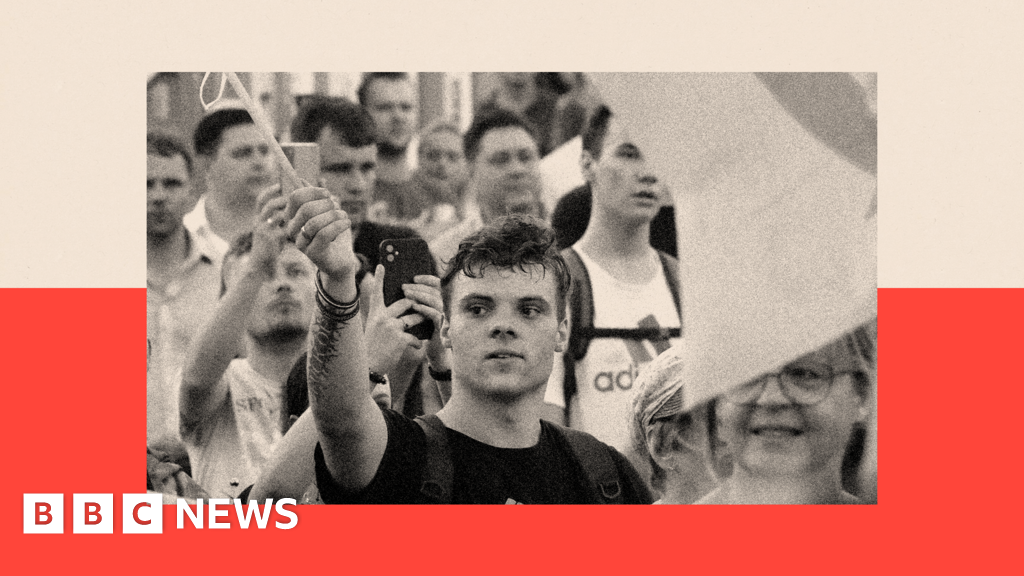Why more young men in Germany are turning to the far-right

```html
The Rise of the Far Right: Why Young German Men Are Drawn to the AfD
A Growing Fear and a Search for Security
In the fog-laden streets of Freiberg, Saxony, a former mining town, 19-year-old Nick throws darts in a dimly lit bar. He speaks of a longing for the bygone era of peace and security his parents describe, a stark contrast to the anxieties he feels today. With Germany's national election looming, Nick and his 30-year-old friend Dominic find themselves drawn to Alternative für Deutschland (AfD), a party whose far-right ideology resonates with a growing number of their peers.
Fueling their unease is a series of attacks involving asylum seekers, most recently the tragic stabbing in Aschaffenburg. While not opposed to all immigration, Nick and Dominic express concern over what they perceive as exploitation of the asylum system, a viewpoint they feel is often unfairly labeled as extremist. "You're called a Nazi because of Germany's past," Dominic laments.
The AfD's Appeal and the Normalization of the Far Right
The AfD, long accused of anti-migrant rhetoric, has recently gained the endorsement of tech magnate Elon Musk, further amplifying its message. As the election draws near, Germany grapples with the question of why the far right, particularly the AfD, holds such appeal for young men. The party's growing normalization in the political landscape, despite past scandals and extremist classifications, contributes to this trend.
Professor Tarik Abou-Chadi of the University of Oxford observes, "They don't seem so extreme any more." This normalization, coupled with a fading memory of Nazi horrors, allows a generation raised with the AfD in the media and parliament to see it as a viable political force.
The Gender Divide and the Role of Social Media
Research reveals a stark gender divide in AfD support, with significantly more men than women expressing positive views of the party. Dr. Rüdiger Maas of the Institute for Generational Research suggests that the left's focus on feminism and equality may alienate some men, pushing them towards the right. The AfD's emphasis on more conservative values resonates with this demographic.
Social media platforms like TikTok play a pivotal role in the AfD's outreach, allowing them to bypass traditional media. The party boasts a substantial TikTok following, surpassing mainstream parties. This digital presence, combined with a network of unofficial fan accounts, effectively disseminates their message, especially to right-leaning users.
The Influencer Effect and a Generation's Concerns
Celina Brychcy, a 25-year-old TikTok influencer, embodies the new face of AfD support. While sharing lifestyle content, she also promotes pro-AfD messages, advocating for policies like stricter border control and a return to traditional gender roles. Despite facing criticism and losing friends, she remains committed to her beliefs, emphasizing the importance of integration while rejecting accusations of racism.
In Chemnitz, Saxony, a group of young men express their right-wing views, voicing anxieties about the future of German identity and questioning historical narratives. Their sentiments highlight a growing divide and the challenges faced by educators like Diana Schwitalla, who recounts instances of Holocaust denial and troubling remarks in her classroom.
Looking Ahead: A Shift in the Political Landscape?
Beyond protest votes, a genuine belief in the AfD's potential for radical change fuels its support base. The party's increasing influence, evidenced by its role in passing a parliamentary motion, raises concerns about the future of German politics. Professor Abou-Chadi warns of the possibility of mainstream parties losing ground to the far right, predicting a shift in the European political landscape, with far-right parties becoming dominant forces.